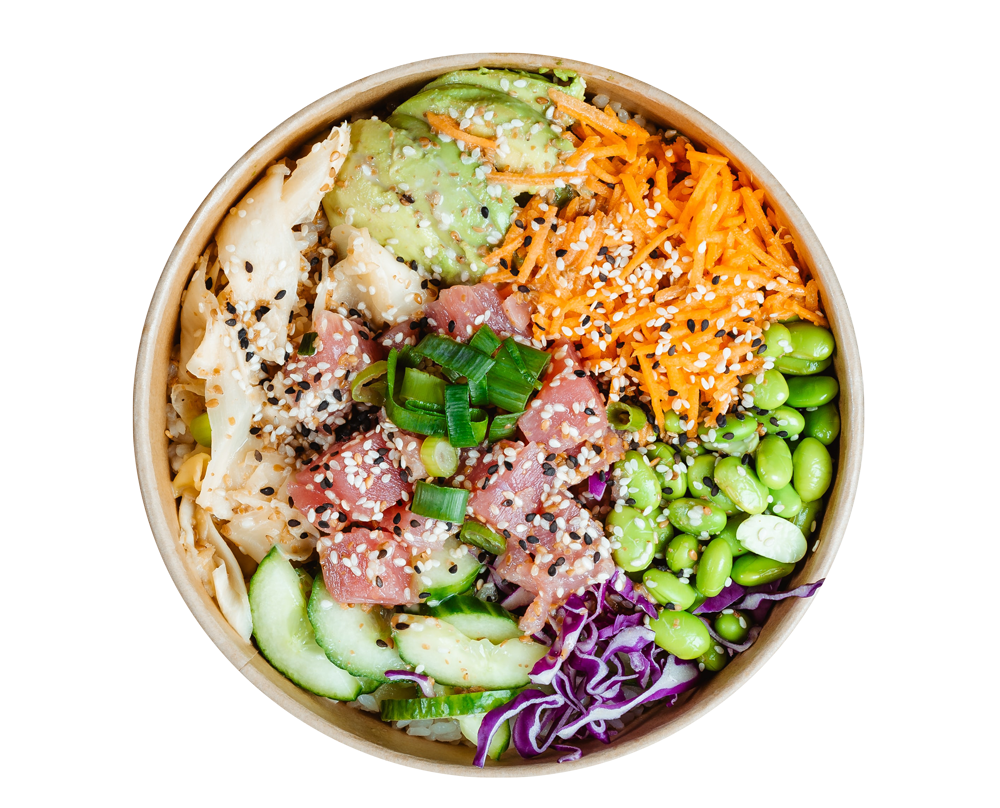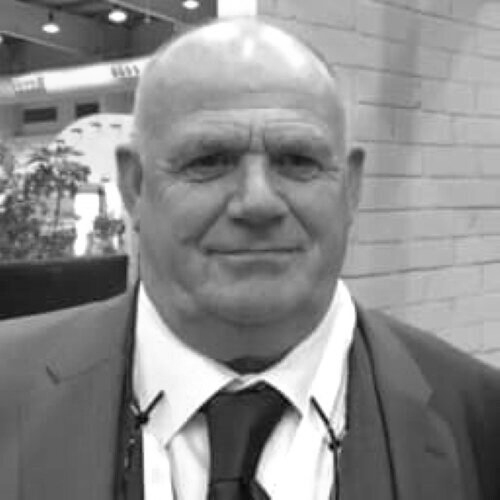Who We Are
LocalSalads is on a mission to transform food availability by building and operating environmentally responsible and cost effective vertical farms throughout the UK and internationally. We produce with an emphasis on localised production and nourish
our communities with safe, nutritious, and delicious food.
We want to help bring our world into a more sustainable future by greatly reducing
the miles our food travels, Eco-friendly deliveries which reduce our carbon footprint,
energy efficient warehouses and recirculated clean water.
Who We Are
LocalSalads is on a mission to transform food availability by building and operating environmentally responsible and cost effective vertical farms throughout the UK and internationally. We produce with an emphasis on localised production and nourish our communities with safe, nutritious, and delicious food.
We want to help bring our world into a more sustainable future by greatly reducing the miles our food travels,
Eco-friendly deliveries which reduce our carbon footprint,
energy efficient warehouses and recirculated clean water.
Who We Are
LocalSalads is on a mission to transform food availability by building and operating environmentally responsible and cost effective vertical farms throughout the UK and internationally. We produce with an emphasis on localised production and nourish our communities with safe, nutritious, and delicious food.
We want to help bring our world into a more sustainable future by greatly reducing the miles our food travels,
Eco-friendly deliveries which reduce our carbon footprint,
energy efficient warehouses and recirculated clean water.
Our History
The Dunling family have been growing Crops from Flowers though to quality salad crops for over 100 years, many of them in East Yorkshire on their own greenhouse nurseries. They were the first to grow Cherry tomatoes in quantity totalling over 5,000 packs per day for Asda.
This equates to over 120,000 tomatoes per day, to make this viable they helped design and build a grader that could colour grade to 20 shades of RED and also to a 1mm size difference in each fruit. They had 3 shifts working 8 hrs each shift as they used to grade for other growers.
The family have always shown an eye for keeping the company at the leading edge of technology, from formative beginnings as one of the first market gardens to buy vehicles to transport produce, to contemporaneous exploits pioneering the burgeoning technology of vertical farming.
Our History
The Dunling family have been growing Crops from Flowers though to quality salad crops for over 100 years, many of them in East Yorkshire on their own greenhouse nurseries. They were the first to grow Cherry tomatoes in quantity totalling over 5,000 packs per day for Asda.
This equates to over 120,000 tomatoes per day, to make this viable they helped design and build a grader that could colour grade to 20 shades of RED and also to a 1mm size difference in each fruit. They had 3 shifts working 8 hrs each shift as they used to grade for other growers.
The family have always shown an eye for keeping the company at the leading edge of technology, from formative beginnings as one of the first market gardens to buy vehicles to transport produce, to contemporaneous exploits pioneering the burgeoning technology of vertical farming.
Our History
The Dunling family have been growing Crops from Flowers though to quality salad crops for over 100 years, many of them in East Yorkshire on their own greenhouse nurseries. They were the first to grow Cherry tomatoes in quantity totalling over 5,000 packs per day for Asda.
This equates to over 120,000 tomatoes per day, to make this viable they helped design and build a grader that could colour grade to 20 shades of RED and also to a 1mm size difference in each fruit. They had 3 shifts working 8 hrs each shift as they used to grade for other growers.
The family have always shown an eye for keeping the company at the leading edge of technology, from formative beginnings as one of the first market gardens to buy vehicles to transport produce, to contemporaneous exploits pioneering the burgeoning technology of vertical farming.
Expertise
In fact, not only are they part of revolutionising the industry they are leading it; finding
new ways to build and implement the technology that drives it. Building the first automated
vertical farm in the UK way back in 2008. This again was a leading technical breakthrough
as they built the farm to feed the animals more nutritional fresh food that had protein and helped with the health of the animals.
This was followed by travelling to HK to build on the 13th floor of a warehouse to
deliver top quality asian salads to the TOP chefs in the city.
Expertise
In fact, not only are they part of revolutionising the industry they are leading it; finding new ways to build and implement the technology that drives it. Building the
first automated vertical farm in the UK way back in 2008.
This again was a leading technical breakthrough as they built the farm to feed the animals more nutritional fresh food that had protein and helped with the health of the animals.
This was followed by travelling to HK to build on the 13th floor of a warehouse to deliver top quality asian salads to the TOP chefs in the city.
Expertise
In fact, not only are they part of revolutionising the industry they are leading it; finding new ways to build and implement the technology that drives it. Building the first automated vertical farm in the UK way back in 2008.
This again was a leading technical breakthrough as they built the farm to feed the animals more nutritional fresh food that had protein and helped with the health of the animals.
This was followed by travelling to HK to build on the 13th floor of a warehouse to deliver top quality asian salads to the TOP chefs in the city.
Then in 2012 to 2014 a stint in Kentucky to build a vertical farm for disabled war veterans to provide employment and fresh food to local areas. This meant designing a wheelchair friendly but a working environment, which included a cafe and teaching facility.
Notably among his many roles is his work at Peninsula Farms, the largest greenhouse grower in the Kingdom of Bahrain and owned by the Royal Family. The farm spanned over 6 hectares of greenhouses on a 100 hectare site. Whilst there, he helped them modernise and bring their food production methods inline with European standards.
Moving the state significantly closer to its goal of becoming self-sufficient, and the first farm to grow salads all year round in the extreme climate conditions. The team was invited to the Royal Palace to meet the King of Bahrain for the exceptional work they had done.
Then in 2012 to 2014 a stint in Kentucky to build a vertical farm for disabled war veterans to provide employment and fresh food to local areas. This meant designing a wheelchair friendly but a working environment, which included a cafe and teaching facility.
Notably among his many roles is his work at Peninsula Farms, the largest greenhouse grower in the Kingdom of Bahrain and owned by the Royal Family. The farm spanned over 6 hectares of greenhouses on a 100 hectare site. Whilst there, he helped them modernise and bring their food production methods inline with European standards.
Moving the state significantly closer to its goal of becoming self-sufficient, and the first farm to grow salads all year round in the extreme climate conditions. The team was invited to the Royal Palace to meet the King of Bahrain for the exceptional work they had done.
Then in 2012 to 2014 a stint in Kentucky to build a vertical farm for disabled war veterans to provide employment and fresh food to local areas. This meant designing a wheelchair friendly but a working environment, which included a cafe and teaching facility.
Notably among his many roles is his work at Peninsula Farms, the largest greenhouse grower in the Kingdom of Bahrain and owned by the Royal Family. The farm spanned over 6 hectares of greenhouses on a 100 hectare site. Whilst there, he helped them modernise and bring their food production methods inline with European standards.
Moving the state significantly closer to its goal of becoming self-sufficient, and the first farm to grow salads all year round in the extreme climate conditions. The team was invited to the Royal Palace to meet the King of Bahrain for the exceptional work they had done.
Grahame moved on to Dubai in 2015 where he worked closely with Saudi Arabian entrepreneur Omar Al Jundi to launch the first vertical farm in the region. Owing to the
desert conditions, cultivating food in the region had been difficult but the ( e) 50 c and
high humidity levels created a challenge for Grahame.
So, building inside a warehouse was unheard of at this time.. The region was able to take
a huge strive forward producing fresh, crisp produce 365 days a year, whilst dramatically reducing the region’s carbon footprint.Now Dubai is one of the leading countries for
Vertical Farming companies.
Grahame moved on to Dubai in 2015 where he worked closely with Saudi Arabian entrepreneur Omar Al Jundi to launch the first vertical farm in the region. Owing to the
desert conditions, cultivating food in the region had been difficult but the ( e) 50 c and high humidity levels created a challenge for Grahame.
So, building inside a warehouse was unheard of at this time..
The region was able to take a huge strive forward producing fresh, crisp produce 365 days a year, whilst dramatically reducing the region’s carbon footprint. Now Dubai is one of the leading countries for Vertical Farming companies.
Grahame moved on to Dubai in 2015 where he worked closely with Saudi Arabian entrepreneur Omar Al Jundi to launch the first vertical farm in the region. Owing to the
desert conditions, cultivating food in the region had been difficult but the ( e) 50 c and high humidity levels created a challenge for Grahame.
So, building inside a warehouse was unheard of at this time.. The region was able to take a huge strive forward producing fresh, crisp produce 365 days a year, whilst dramatically reducing the region’s carbon footprint. Now Dubai is one of the leading countries for Vertical Farming companies.
Innovation
During this time Grahame’s philosophy was that if growing inside a warehouse we needed to bring the outside inside. After the sun does not fully reach intensity when daylight comes and the same for night time.
So working alongside a LED company he helped design a dimming LED so the light goes to full intensity over 2 hrs and the same for the night time. Also they created a moon cycle phase to mimic the moon giving light during the night period.
This was also linked to the heating and cooling system so as it got lighter it got warmer and vice versa to mimic natural day and night time periods.
Innovation
During this time Grahame’s philosophy was that if growing inside a warehouse we needed to bring the outside inside. After the sun does not fully reach intensity when daylight comes and the same for night time.
So working alongside a LED company he helped design a dimming LED so the light goes to full intensity over 2 hrs and the same for the night time. Also they created a moon cycle phase to mimic the moon giving light during the night period.
This was also linked to the heating and cooling system so as it got lighter it got warmer and vice versa to mimic natural day and night time periods.
Innovation
During this time Grahame’s philosophy was that if growing inside a warehouse we needed to bring the outside inside. After the sun does not fully reach intensity when daylight comes and the same for night time.
So working alongside a LED company he helped design a dimming LED so the light goes to full intensity over 2 hrs and the same for the night time. Also they created a moon cycle phase to mimic the moon giving light during the night period.
This was also linked to the heating and cooling system so as it got lighter it got warmer and vice versa to mimic natural day and night time periods.
As the plants are Babies he also devised a nutritional program to go from mostly water through to full feed as the plant grows. This all resulted in the taste and texture that the family is known for growing Gourmet salads that stand out from the rest.
Grahame has passed the knowledge and skill set to his son Matthew who is the CEO of WorldWide Local Salads and he has kept the tradition of doing the impossible and making it work. The facility in Malmo Innovation park is doing just that full of new innovation from energy saving LED Lighting through to innovation of an energy power source to run the LED’s from.
As the plants are Babies he also devised a nutritional program to go from mostly water through to full feed as the plant grows. This all resulted in the taste and texture that the family is known for growing Gourmet salads that stand out from the rest.
Grahame has passed the knowledge and skill set to his son Matthew who is the CEO of WorldWide Local Salads and he has kept the tradition of doing the impossible and making it work.
The facility in Malmo Innovation park is doing just that full of new innovation from energy saving LED Lighting through to innovation of an energy power source to run the LED’s from.
As the plants are Babies he also devised a nutritional program to go from mostly water through to full feed as the plant grows. This all resulted in the taste and texture that the family is known for growing Gourmet salads that stand out from the rest.
Grahame has passed the knowledge and skill set to his son Matthew who is the CEO of WorldWide Local Salads and he has kept the tradition of doing the impossible and making it work. The facility in Malmo Innovation park is doing just that full of new innovation from energy saving LED Lighting through to innovation of an energy power source to run the LED’s from.
This results in a system that produces top quality salads from Lettuce through to Chillies and Strawberries all under the same LED’s. This alone allows the grower to grow any crop needed without the capital expense of changing the LED’s . Therefore making growing inside a warehouse the same conditions as growing inside a greenhouse but with far more climate control and 100% precision growing.
This results in a 40% saving on energy usage and a 30% saving on capital build. Growing inside a warehouse under a 100% controlled environment and giving perfect conditions as and when the plants need it results in the perfect plant and all using less power and saving carbon emissions again, doing what others say is impossible.
This results in a system that produces top quality salads from Lettuce through to Chillies and Strawberries all under the same LED’s. This alone allows the grower to grow any crop needed without the capital expense of changing the LED’s .
Therefore making growing inside a warehouse the same conditions as growing inside a greenhouse but with far more climate control and 100% precision growing.
This results in a 40% saving on energy usage and a 30% saving on capital build. Growing inside a warehouse under a 100% controlled environment and giving perfect conditions as and when the plants need it results in the perfect plant and all using less power and saving carbon emissions again, doing what others say is impossible.
This results in a system that produces top quality salads from Lettuce through to Chillies and Strawberries all under the same LED’s. This alone allows the grower to grow any crop needed without the capital expense of changing the LED’s . Therefore making growing inside a warehouse the same conditions as growing inside a greenhouse but with far more climate control and 100% precision growing.
This results in a 40% saving on energy usage and a 30% saving on capital build. Growing inside a warehouse under a 100% controlled environment and giving perfect conditions as and when the plants need it results in the perfect plant and all using less power and saving carbon emissions again, doing what others say is impossible.



